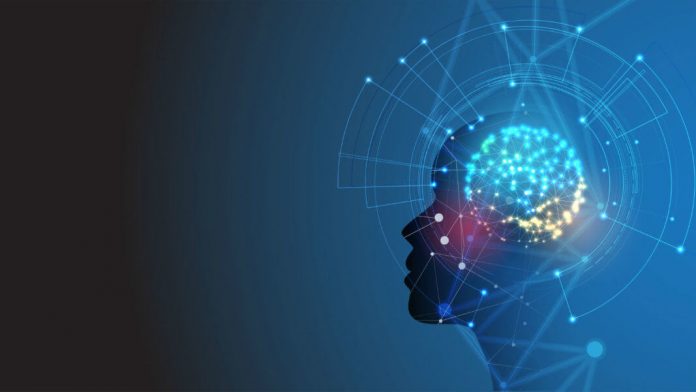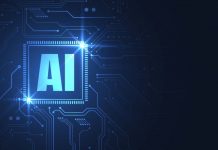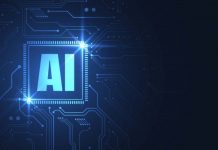This article is written by Upasana Dash from Madhusudan Law College, Odisha. This is a comprehensive article which deals with several aspects of using Artificial Intelligence tools in law firms.
Table of Contents
Introduction
The hypothesis of Artificial Intelligence is a tangled issue that affects almost every sphere in present days. When we think about Artificial Intelligence, the primary idea that comes to our mind is a machine that can think and act like humans. The image of Artificial Intelligence has got huge impulse as it is not limited to only a topic of discussion for students, rather for academics, lawyers, and policymakers.
Artificial Intelligence is the science that can create machines to solve problems and perform complicated tasks. The initial command is given by humans and the resulting outcomes from the machines through the software of Artificial Intelligence. Planes that fly without pilots, robots are a few examples of Artificial Intelligence. In present days AI has been implemented in legal areas, e-discovery, legal research, compliance, contract analysis, case prediction, and document automation.
It takes a lot of effort from the lawyer’s side to research, and draft the case to the best to help the clients. Most importantly to counsel the client properly, who does not understand the complexity of the legal system. The whole process consumes a lot of time. So establishing Artificial Intelligence in the law firms can be an exceptional step, because it will reduce time consumption during legal research, drafting a file, and can counsel people in a very convenient manner. Artificial Intelligence will reduce work stress for lawyers in individual and law firms as well. Generally, legal research is a very lengthy and time-taking process, in which an AI can help lawyers.
The world’s first Artificial Intelligence has been invented in Canada named ROSS. With the help of ROSS, lawyers put in less effort than before, they can ask him huge amounts of data in just a fraction of seconds. ROSS helps to find the exact facts, what lawyers actually need. An AI can be more focusing on advising clients and lawyers also. Justice has no price tag in it. It’s a totally blurry concept that “ more money, well-served justice.” The introduction of Artificial Intelligence in legal firms can be a great help to lawyers. Artificial Intelligence behaves like an oracle, it adjudicates the outcomes.
Advancement of artificial intelligence
The genesis of AI can be a source of Greek mythology in the West in Book ⅩⅤⅢ of the Iliad, the great artist Hephaestus described robot-like machines. The ancient clock-computer was revealed from the Greek scene “The Antikythera mechanism”. All these old computers were single computer models. But in modern computers, there are so many computer models and programs and perform differently.
In the middle age of Europe, Pope Sylvester-Ⅱ was built a talking head with limited vocabulary skills. Arab astrologers also have built a thinking machine named Zairja. Besides, the Chinese had made a similar astronomical clock made by Su Sun in 1088 A.D.
What is artificial intelligence
Artificial Intelligence is a machine that has the technical ability to solve complex algorithms, store data in bulk, and solve mathematical functions. These are human brain-like structures incorporated into a machine. Artificial Intelligence is broadly defined as a computerized machine having the capacity of solving complex problems.
Concisely artificial intelligence is categorized into 6 categories: Machine Learning, Natural Language Process, Expert System, Vision, Automated Speech Recognition, Planning, and Robotics. Normally, Artificial Intelligence combines machine learning and deep learning. In today’s life, Artificial Intelligence is built to work with humans by reducing stress.
John McCarthy is regarded as the Father of the term “Artificial Intelligence” during the Dartmouth Conference in 1956. In 1950, the technology behind Artificial Intelligence started with the advancement of the electronic computer in 1941. The research of Artificial Intelligence developed a new concept of The General Problem Solver. American scientist Marvin Minsky says artificial intelligence is “The science of making machines to do things that would require if done by men”.
In the twenty-first century, Artificial Intelligence is implemented in different professions, like medical, agriculture, fishing, teaching, etc. and it will definitely bring great productive work in the legal field as well.
Importance of Artificial Intelligence in the Indian legal framework
Artificial Intelligence can make a major change in the scope of the law in India. The legal system is very vast and constantly updating itself due to the amending procedures and timely repeal of certain provisions. Artificial Intelligence can research the actual facts and can balance the expenditure which can bring significant quality change in the legal field. AI has gained attention from Google, Facebook, IBM, etc. Google’s AlphaGo became the first computer program to beat the European champion Fan Hui in Go, a game with about 250 choices per move. All these inventions of AI have boosted up the IP protection of AI-generated materials. People have accepted AI and affability which can bring an indirect impact on legal and policy considerations. According to a survey conducted by the European Parliament showed that about 68% expressed affirmative views on AI, 79% had appreciated robotics.
Artificial Intelligence has touched almost all types of work field. And it’s adding continual growth in the legal profession also. Though the Indian legal system has not updated itself with the advancement of technology and with new software. Lawyers are still anticipating the typical methods for a case. Enabling technology in the legal field will nurture a more efficient and productive work of lawyers. Lawyers can deal with more complex cases without haste and stress. They can draft accurate and exact facts about the case and can advise more generously to their clients. Most importantly legal research requires more man-hour which can be reduced with the help of Artificial Intelligence. Artificial Intelligence can fetch genuine and authenticated data in seconds.
The face of future Law firms
Artificial Intelligence is all about a combination of statistical and logical inference. The analytical reports of 2007 and 2017 say that the cost of data storage has decreased from 12.4 dollars per gigabytes to 0.004 dollars per gigabytes simultaneously that data growth has been increased. It’s easy and cheap to access Artificial Intelligence to engage in learning. We can blow-up massive amounts of data. Machine learning, expert systems, and other AI techniques enable lawyers to set aside their time for more interesting work. Mining documents, due diligence, answering routine questions, predicting case outcomes, drafting contracts all can be faster, better, and cheaper with the assistance of AI.
The legal industry is still developing in India and looking forward to more AI-based and automated assisting tools and software. However, these AI-based and automated assisting tools are not going to replace lawyers’ jobs where analysis, decision make them more efficient and competent while automating various clerical tasks. The legal profession is highly driven by analysis, decision making, and representation which cannot be automated. AI-based software and programs can reduce lawyer’s time and effort considerably and can help the lawyers and firms give a more authentic and result oriented suggestion to their clients.
There are four major significant roles, that Artificial Intelligence can perform:
- Document Discovery
- Command Automation
- Legal Research
- Contract Analytics
Document Discovery
In essence, Artificial Intelligence is a software that can produce several vast documents that are relevant to the research, a lawyer can get accuracy and authentication in data just by looking at the screens.
Command Automation
By using the software one can objectify his legal questions and get legal information. For which he would have interacted with the lawyers. Artificial Intelligence can enable one person to draft a will or memorandum by himself, or they can put legal guidelines while dealing with clients or other companies and associations. Artificial Intelligence can assist and aid clients directly.
Legal Research
Lexis and Westlaw had already applied the natural learning process(NLP) techniques to legal research. Bloomberg BNA had followed the same path. In present days, ROSS intelligence has been adopting IBM Watson’s Q&A technology to do legal research on bankruptcy and insolvency matters. It is very time-consuming to access huge data with regard to knowledge of the law in different jurisdictions. By introducing cheap and authentic software, Artificial Intelligence provides quality research to lawyers which would have taken more time.
Contract Analytics
Natural language processing Machine learning and other AI techniques being adopted to various outlooks of the contract life cycle, discovery, analysis, and due diligence. Kira Systems reviews that contract review times in due diligence can be turned down 20 to 60%. Seal Software can trail a network to find and then categorize all the company’s existing contracts. Artificial Intelligence can objectify risk in business in litigation and other law firms as well. It can predict Court proceedings. Contract analysis is going well to achieve success for machine learning in law.
How will AI impact the legal profession
The installment of Artificial Intelligence can bring a drastic change in the composition, structure, and economics of law firms. Globally, as we see, in recent past years the level of competition is getting high in the legal field of action. Now the establishment of Artificial Intelligence in law firms has come to realize the competition with the innovation of technology and tools in the spirit of client requirements. Currently, there are many fields in which Artificial Intelligence in law is useful. Let’s discuss several aspects outlined below:
Legal research
This is the first crucial step for lawyers. To extract relevant evasive data requires more man-hours and efforts so that the research material can be put into the criteria of the case. The software which is fit inside in Artificial Intelligence can easily get through the database by reducing man-hour.
Due diligence
Litigants perform due diligence with the help of Artificial Intelligence software to know the background information. Technologists have decided to include contract reviews, legal research, and electronic discoveries in this section.
Prediction technology
Lex Machina has built a huge set of IP cases, uses data extracting and predictive analysis to forecast outcomes of IP litigations. Lex Product has developed models to predict Supreme Court cases.
Document automation
By just submitting the required documents which you wish to incorporate in your legal document, get your documents ready within minutes.
Self-service compliance
Neota logic by its hybrid reasoning platform which holds expert systems, natural language processing (NLP) to give fact and content-based answers to legal, compliance, and policy questions.
Intellectual property
Artificial Intelligence can help lawyers in developing Intellectual Property, can also help in making content in Intellectual Property. In case of registration of a trademark, patent, copyright, etc Artificial Intelligence helps a lot.
Electronic billing
The lawyer’s billable hour will automatically count over the screen. Artificial Intelligence legal software also helps the lawyer and firms in preparing the invoices as per the work done by them. Thus, helps both lawyers and clients.
Review documents and contracts
Law Firms use software templates to create filled out documents based on data inputs. Artificial Intelligence can give reviews on different documents and it can also establish contacts with the clients.
Providing additional insights and “shortcuts” through analytics
Artificial Intelligence can supply various methods through analytics. In essence, adding new shortcuts in the case procedure or can give extraordinary legal information. Artificial Intelligence can give recent judgments and several shortcuts to get a degree in case.
Automating creative processes
In India, most of the senior advocates follow the same typical time-consuming procedure. Law firms, corporates, and individual lawyers can get justice for their clients by adopting innovative steps with the help of software. Walter Savage Lander rightly says, “Delay of justice is injustice.”, so we need to advance the legal field by adding technology to it. Artificial Intelligence can help lawyers to seek creative processes autonomously. This will definitely conduct a fundamental change in the legal field of work.
Pros and cons of AI in law firms
These are the highlighted basic usages. Those are associated with the use of Artificial Intelligence in the legal field of work. The main legal ethical obligation of advocates when they are aiding or advising their clients by using Artificial Intelligence solutions is the duty of competence. The problem is that Artificial Intelligence can not maintain such privacy between the clients, unlike lawyers.
The second vital issue is what Artificial Intelligence fails to perform? What could be the legal liabilities? In addition to the duty of competence, legal liabilities when Artificial Intelligence solutions fail is also an issue. The question of how far lawyers can go for legal liabilities caused due to failure of Artificial Intelligence tools? How far can this be maintainable in the eyes of law? For the default of software, it does not seem to be Legal Firms or individual lawyers can be compensated. Ultimately the client will suffer the loss.
There may be instances in which a question may arise regarding the confidentiality and protection of the data of the clients by the use of artificial intelligence. It will result in a form of a drawback for the lawyers about their confidential relationship with their clients. Lawyers need to communicate and counsel their clients in a very comfortable way. But in the case of Artificial Intelligence are incompetent to some extent because the software runs only on basis of some selective commands those has been imputed within the Artificial Intelligence. Clients can access those questions particularly.
Conclusion
If we cut apart some pros and cons from the software by adding a better-updated version of Artificial Intelligence, it can lead to a better future in the legal field of work. There is a wrong assumption by advocates that Artificial Intelligence or machine learning is a threat to their existence, or simply that Artificial Intelligence is going to replace many talented and well-experienced lawyers. The evidence from other industries and sectors such as e-commerce, accounting, healthcare, and agriculture is that Artificial Intelligence will only enable law firms and lawyers to perform more with less, to become way more productive than predecessors.
References
- Livemint
- Greek Mythology
- Study.com
- Vox.com
- Britannica
- Metalepsis Workshop
- Codebots
- IEEE Xplore
- Cloud Storage pricing
- ZDnet
- Bloomberg
LawSikho has created a telegram group for exchanging legal knowledge, referrals and various opportunities. You can click on this link and join:
 Serato DJ Crack 2025Serato DJ PRO Crack
Serato DJ Crack 2025Serato DJ PRO Crack











 Allow notifications
Allow notifications


